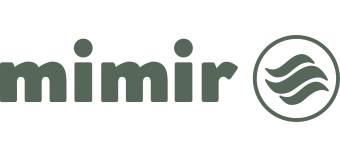
Jobs posted by KNAW
Mimir provides the automated job management of jobs on job boards for KNAW.
Latest jobs
Collectiemedewerker Perscollectie - IISG
Dit ga je doen
Je ontsluit archieven behorende tot de Perscollectie van het Nederlands Instituut voor Beeld en Geluid (NIBG).
De Perscollectie bestaat uit de archieven van het Persmuseum. Het Persmuseum is in 2018 opgegaan in het NIBG in Hilversum. Het IISG verwerkt en beheert de archieven van de Perscollectie, verzameld door het NIBG. De Perscollectie betreft vooral archieven van journalisten, cartoonisten, krantenuitgeverijen en andere organisaties die zich met de journalistiek bezighouden.
Je ordent en beschrijft de perscollecties zodat ze vindbaar zijn via onze catalogus en verschillende andere platforms. In overleg met het NIBG wordt een keuze gemaakt welk archief prioriteit krijgt bij verwerking.
Je werkt hierbij nauw samen met collega’s die betrokken zijn bij het inventariseren van andere archieven en specialisten die verantwoordelijk zijn voor het ontsluitingsproces.
AcademicTransfer
2 applications
0 views
16-02-2026 KNAW
Directeur Bedrijfsvoering KNAW Humanities Cluster
Wat ga je doen?
Als directeur Bedrijfsvoering zorg je voor de effectieve en efficiënte bedrijfsvoering van het Humanities Cluster (HuC). Daarbij houd je rekening met de KNAW-brede kaders en wet- en regelgeving. Binnen de directie van het HuC ben je verantwoordelijk voor een optimale inzet en beheer van financiële, personele en materiële middelen. Je hebt een belangrijke inbreng in de strategische ontwikkeling van het Humanities Cluster en vervult daarbinnen een innoverende en stimulerende rol. Dit alles doe je niet alleen voor de organisatieonderdelen van het Cluster, maar ook voor de aangesloten instituten. Daarnaast neem je actief deel aan het bedrijfsvoeringsoverleg van de KNAW, waarin je samen met andere bedrijfsvoerders constructief bijdraagt aan de KNAW brede bedrijfsvoering. Tevens participeer je in KNAW-brede bedrijfsvoeringsprojecten.
Je geeft op coachende wijze leiding aan de verschillende ondersteunende afdelingen binnen het bedrijfsbureau: Financiën & Control, Personeel & Organisatie, Facilities & Support, Staf & Beleid, Grant Team, Informatiemanagement, Communicatie en Projectenbureau. Je bent de eindverantwoordelijke voor de processen van het bedrijfsbureau.
De komende tijd zijn er op het gebied van de bedrijfsvoering binnen het HuC de volgende aandachtspunten: De nauwere samenwerking tussen Huygens Instituut/Meertens Instituut en het onderbrengen van DHLab ( DHLab – Digital Humanities Research Lab at KNAW HuC) en NL-Lab (Welkom - NL Lab) bij beide instituten; het opstellen van KPI's voor de afdelingen van het Bedrijfsbureau, te starten met Financiën & Control en Personeel & Organisatie; de toegankelijkheid van de corporate websites; de spanning tussen Open Science en wettelijke beperkingen daaraan. Natuurlijk is er ruimte voor inbreng van eigen aandachtspunten.
AcademicTransfer
1 application
0 views
12-02-2026 KNAW
Managementassistent Humanities Cluster
Dit ga je doen
Als managementassistent ondersteun je het managementteam bij diverse administratieve, organisatorische en secretariële taken. Je fungeert als spil binnen de organisatie en zorgt ervoor dat alles op rolletjes loopt.
Je hebt de volgende taken en verantwoordelijkheden:
- Je beheert de agenda en plant afspraken en vergaderingen voor de instituutsdirecteur IISG en de directeur Data & Collecties;
- Je bereidt vergaderingen voor en notuleert vergaderingen van het MT (XL) IISG en het overleg tussen de OC/directie IISG;
- Je ondersteunt bij administratieve processen en correspondentie en beheert documenten en archieven;
- Je ondersteunt bij de organisatie van evenementen en bijeenkomsten;
- Je bent de contactpersoon voor Smart Business Travel en ondersteunt medewerkers bij het boeken van dienstreizen.
AcademicTransfer
2 applications
0 views
03-02-2026 KNAW
Collectiebeschrijver - NIOD
Je gaat deel per 1 april 2026 uitmaken van het team Collecties van de Afdeling Collecties en Diensten, dat archieven, foto’s en bibliotheekmateriaal beschrijft en catalogiseert. Het team zorgt ervoor dat de rijke collecties van het NIOD - grote en kleine archieven, foto’s en bibliotheekmateriaal - zorgvuldig toegankelijk worden gemaakt voor bezoekers in de studiezaal én online. In de collecties van het NIOD kom je van alles tegen: dagboeken en brieven uit de oorlog, foto’s van NSB’ers en brieven van dienstplichtigen uit de Onafhankelijkheidsoorlog met Indonesië. Met jouw expertise bepaal je de historische waarde, houd je rekening met privacy en auteursrechten, en leg je elk stuk vast in ons archiefbeheersysteem. Je krijgt de ruimte om zelfstandig beslissingen te nemen binnen de richtlijnen van het NIOD.
AcademicTransfer
10 applications
0 views
03-02-2026 KNAW
Student-assistent Openjournals
Dit ga je doen
Je gaat een inventarisatie maken van wetenschappelijke studententijdschriften in Nederland, die voldoen aan vooraf bepaalde criteria. Je neemt contact met ze op en bespreekt de mogelijkheid om op het Openjournals platform te verschijnen. Vervolgens ga je hun on-boarding proces begeleiden. Daarnaast ga je documentatie ontwikkelen zodat redacties van deze tijdschriften zelfstandig met het platform kunnen werken wanneer het on-boarden voltooid is. Tevens draag je bij aan andere activiteiten ter ondersteuning van Openjournals.
AcademicTransfer
11 applications
0 views
02-02-2026 KNAW


